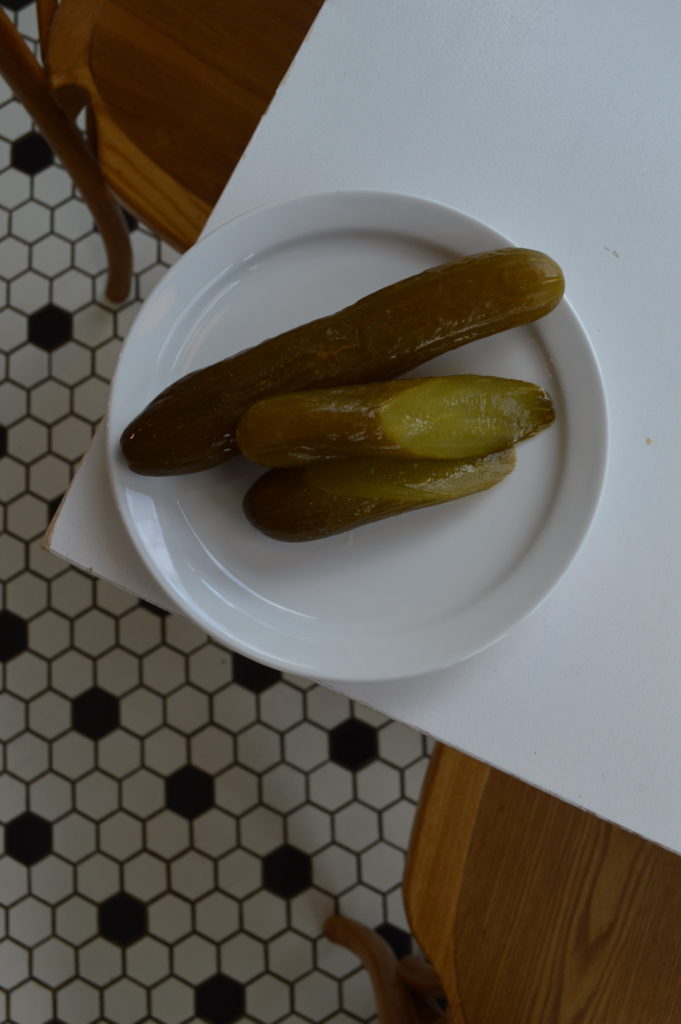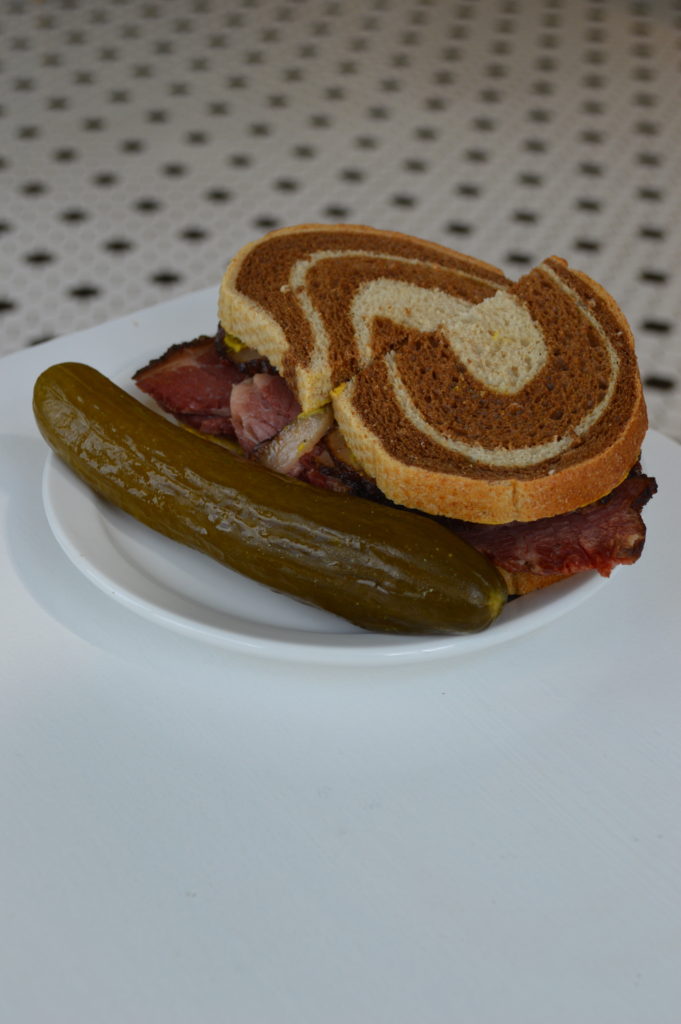
I had heard of kosher pickles many, many times in my life, but always assumed that they were just pickles that were, well, kosher, as in approved for consumption in Jewish dietary law. Turns out that is not the case, and kosher pickles are actually a particular style of pickle, one that is naturally fermented like those described in this post on lacto-pickles. If you are familiar with sauerkraut you are familiar with lactic acid fermentation. Anyways kosher pickles are the real-deal accompaniment to deli sandwiches like smoked meat or pastrami.
If you grew up on Bick’s, kosher pickles will seem strange. They have no sugar, in fact no sweetness at all besides whatever natural sweetness might be in the vegetables. And the character of the acidity is much different, as it is primarily lactic acid instead of the acetic acid of vinegar.
Because the cucumbers are left whole and never cooked, they have an amazing, crunchy, juicy texture. There are beautiful little hot-house cucumbers available year-round at Edmonton farmers’ markets grown by producers like Doef’s and S4.
For flavours I go classic: garlic, dill, and just a touch of chili.
So. A recipe. As I discussed at length in this post on kimchi, if you are really devoted to quality and consistency, it is hard to come across good recipes online: they usually call for a spoonful of this and a few pieces of that “per jar”. I set out to make a recipe which calls for every ingredient by weight, to the gram.
Kosher Dill Pickles
Formula
- 1 kg little pickling cucumbers
- 22 g whole garlic cloves, crushed
- 28 g dill, fresh
- 0.28 g chili flakes (a small pinch, less than 1/4 tsp)
- 1.3 L water
- 65 g kosher salt
Procedure
- Layer cucumbers, garlic, dill, and chili flakes in a food safe container that is just big enough to hold the ingredients.
- Combine the water and salt in a separate container and whisk until salt is fully dissolved. The water will go from cloudy to clear once salt is dissolved.
- Pour the brine over the vegetables until they are fully covered. The exact amount of brine you need will depend on the sizes and shapes of your cucumbers and container. Once covered, weigh down the vegetables with a ceramic plate to keep them submerged.
- Cover container and leave at room temperature (22°C) for 7 days.
- After 3 or 4 days there will likely be some foam or scum on the surface of the liquid. Skim this away and discard. Continue to check for foam or scum every day or two for the rest of the week.
- After 7 days taste one of the pickles and decided whether they are sufficiently acidic. If so, strain off brine. Bring brine to a boil and then chill thoroughly before pouring back over pickles. Store finished pickles in fridge. If the pickles are not sufficiently acidic leave at room temperature for another day and evaluate again.
We recently started making these at June’s Delicatessen to accompany our smoked meat sandwiches.
